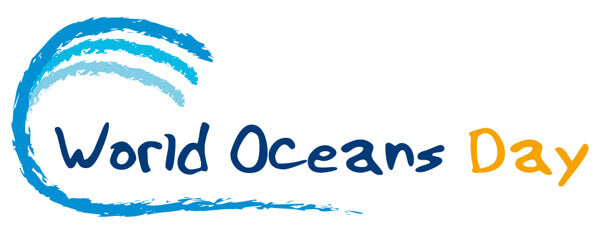World Oceans Day takes place each year on June 8th and has been celebrated globally since 2002. The Ocean Project, which has coordinated and grown World Oceans Day throughout the years, advances ocean conservation in partnership with aquariums, zoos, museums, and other visitor-serving organizations around the world. The events they hold focus on preventing plastic pollution and encouraging solutions for a world of healthy oceans.
And, our oceans can use all the support they can get. According to The World Economic Forum, 32% of the 78 million tons of plastic packaging produced annually wind up in our oceans. That’s the equivalent of dumping one garbage truck of plastic into the ocean every minute. They also predict that the amount of plastic in the ocean is set to increase tenfold by 2020. And, that by 2050, there will be more plastic in the ocean (by weight) than fish.
Important Ocean Facts
- Humanity depends on a healthy ocean.
- The ocean generates most of the oxygen we breathe.
- Nearly one of every two people relies on the ocean for their primary source of protein
- The ocean drives economies around the globe.
- Natural barriers such as coral reefs, help protect us from natural disasters.
- Provides an abundance of food.
- Regulates our climate.
- Offers a pharmacopeia of medicine.
Plastics enter our oceans by ineffective or improper waste management, intentional or accidental dumping and/or through storm water runoff. About 80% comes from people leaving garbage and plastic litter behind after enjoying a day at the beach. Plastic grocery bags, straws, food wrappers, plastic beverage bottles, cans and plastic cups and plates are among the top 10 debris items found on beaches worldwide. See how plastic is dangerous to our oceans, health and wildlife at Earthday.org.
What Can You Do to Reduce Plastic Ocean Pollution?
- Join in a World Oceans Day event and participate in your local beach clean-ups.
- Reduce the use of plastics as much as possible.
- Choose reusable water bottles and avoid plastic drinking bottles and cups.
- If you use plastic drinking bottles or cans, dispose of them in a recycling container.
- Say no to plastic straws at every opportunity and carry your own bamboo straw.
- Shop with reusable bags. Americans throw away over 100 billion plastic bags a year!
- Off to the beach? Wrap foods in reusable food wraps and take them back home.
- Take your own reusable cutlery along to the beach, park or hiking trail.
- Choose an Earth-friendly alternative to disposable plastic plates and utensils.
At bambu® we designed and developed a product range that provides a beautiful and eco-friendly alternative to disposable plastics. In fact, ours are the original bamboo plates and cutlery and they’re unlike any other on the market. Called Veneerware®, they’re made with 100% sustainable bamboo and are certified compostable. Over the last 15 years, we’ve worked hard to reduce the use of plastic in our packaging to the bare minimum, and what we do use is biodegradable. We continue to find ways to reduce our plastic footprint.
Long before we were a member of 1% for the Planet, the core of our business and values has always been about promoting healthy eco-systems. With Veneerware®, you can enjoy the convenience of disposable dinnerware along with the durability and style of reusable. Best of all, you’ll be doing your part to reduce plastics from our oceans. If our organic plates and utensils do somehow wind up in the ocean, they’ll quickly compost without leaving any trace of chemical residue behind.
Our oceans are in a state of peril, while the health of our planet is inextricably linked to the health of our oceans. This vicious cycle must end! The sad reality is that all marine debris is generated by humans. Every single bit of it. So, it’s up to each of us to make choices that support our oceans, our eco-system and our beautiful planet this World Oceans Day, and every day of the year.





